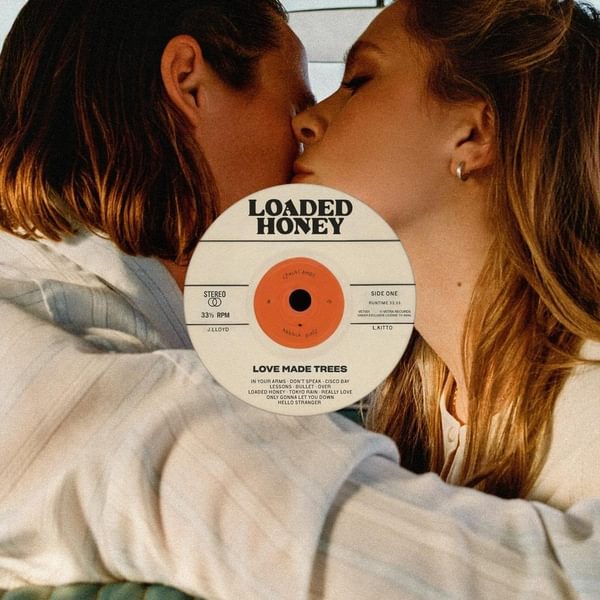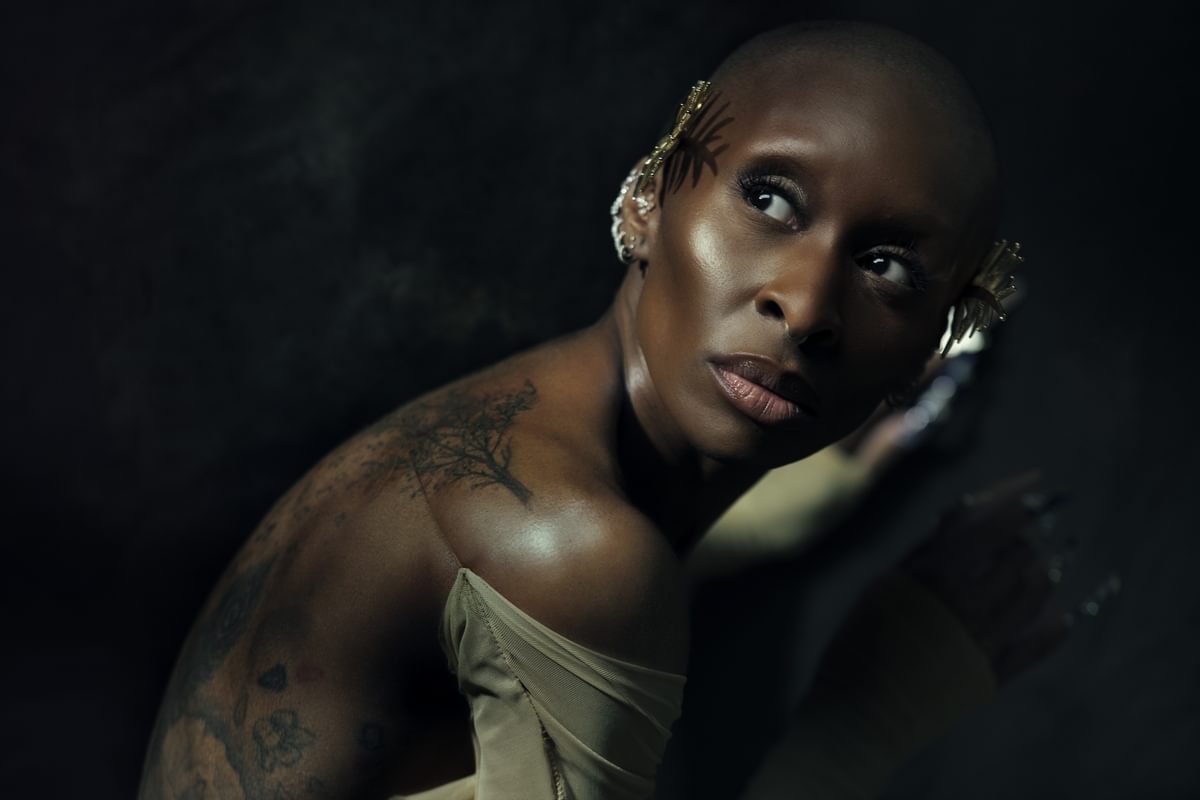
The quiet fury of Cynthia Erivo
Styling by Patti Wilson | Make up by Joanna Simkin | Nails by Clawz By Dior | Production by Russ Lemkin
Her music lays bare heartbreak, healing, and the hard lessons of relationships, but behind Cynthia Erivo’s glittering career lies a relentless drive and a refusal to accept limits, she tells Sophie Leigh Walker.
We knew it all along, it seems: Cynthia Erivo is not of this world.
Everything, from the way she presents herself, to her voice – that extraordinary thing which seems to belong to some divine ‘elsewhere’ – and the career earned from it, is somehow beyond us. Even when Erivo is not emerald green, as with her recent Oscar-nominated performance as Elphaba in Wicked, she cuts a technicolour figure against Kansas greyscale.
She is only a thimble taller than 5 foot but her towering platforms – with weapons-grade heels, bejewelled nails the length of talons and dozens of piercings laden with gold – create a presence that is hyperreal. But perhaps that’s just the magic: the stagecraft she perfected on Broadway and the West End; the particular something that would then transmute to the screen. An Oscar shy of EGOT status - but nominated for all - it’s a natural assumption that Erivo must be in possession of post-human talent, a goddess walking among mortals.
But Cynthia Erivo is a Stockwell girl born to Nigerian immigrant parents, and the ‘magic’ is work, risk and all the things behind the curtain which you do not see.
It’s hard to know Erivo because she is tactfully in command of exactly how much she wants you to learn. Her work across stage and cinema has been to realise the vision of others, the safest place to hold herself at some remove - but in her own music, there is no spectacle. It’s an invitation to understand a woman who is otherwise closely-guarded.
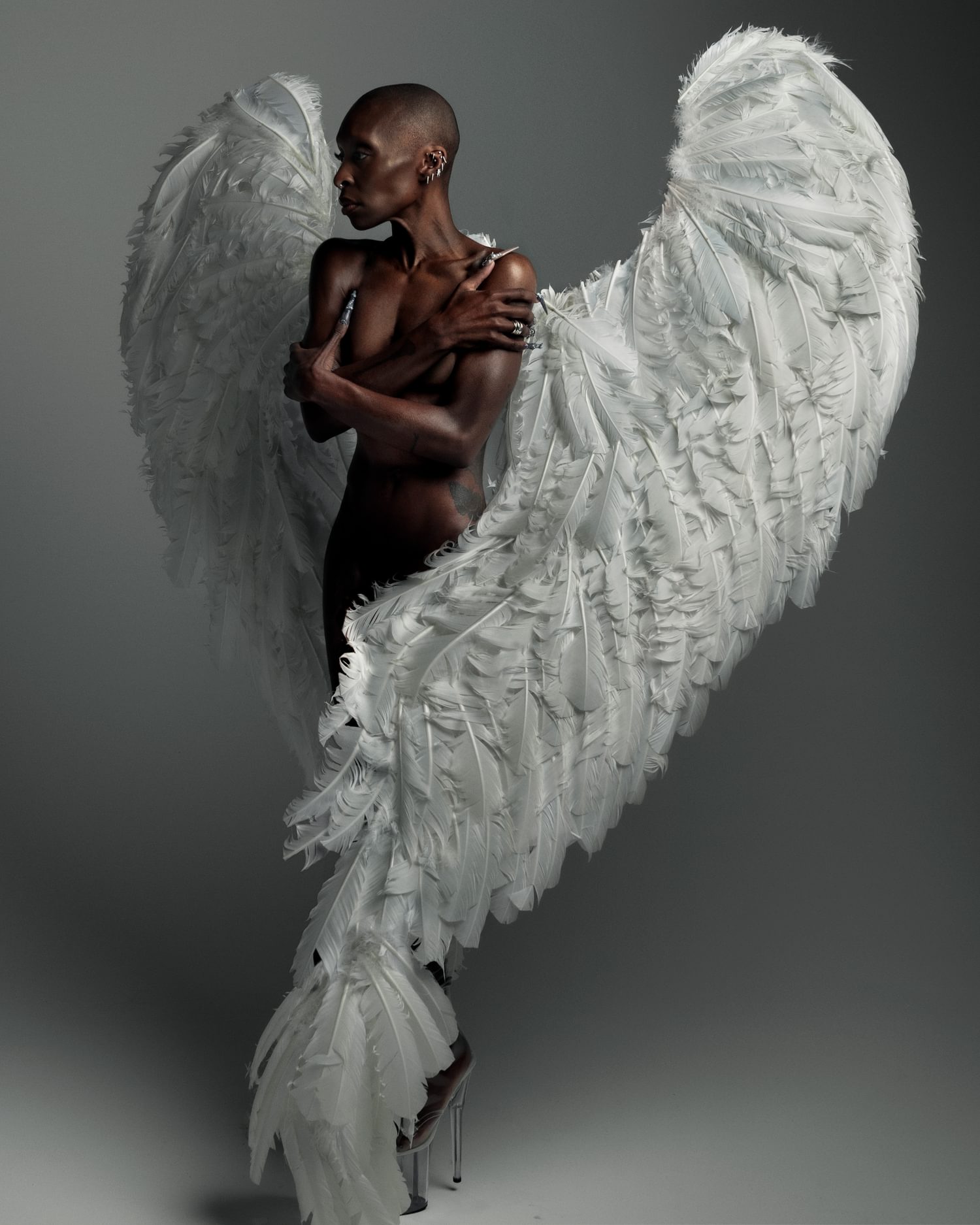
Following what she describes as “the Wicked of it all”, with a vague wave of her hand, and the circus of relentless promotion with co-star Ariana Grande, Erivo is unveiling her second album I Forgive You, released last week. “There are things I tried here that I’ve never done before, on any stage or record,” she tells me. While she describes her 2021 debut Ch. 1 Vs. 1 as a confluence of different languages with the writing partners in the room, I Forgive You is unified. “It all makes one sentence, not just singular words,” she says. “It’s telling the whole story, showing the whole picture. This time around, you get to see who I am honestly.”
Though she defines her sound as if “Brandy and Enya had a baby” – a love letter and revival of the RnB that shaped her when men sang in the rain and women gazed out of windows – Erivo takes her voice to its extremities. Her falsetto has never soared higher; the lower part of her range sinks deep into her boots. There’s whistling, breath, yodelling and wailing – even percussion from her nails. “I played with where the limit might be, and I wanted to find things that I may have been too shy to do before,” she says.
It would not be a Cynthia Erivo work, however, if it didn’t have a touch of theatricality. I Forgive You is a 20-track odyssey divided into four acts; the curtain falls and rises with interludes which are entirely acapella. A break-up. Something new. The deepening of a connection. Acceptance.
“I wasn’t supposed to write that many songs,” she smiles, “but the songs kept happening to me. There’s a singularity when you write each piece, but when I stood back, I could see themes which were reflections of what was happening in my life: breakups, makeups, losses, gains, all of those things. Heartbreak. I think most artistic exploits act as a conduit for what you’re experiencing at the time, but also for what the world’s experiencing as well.”
Fame has elevated Erivo’s life, and it has isolated her. “I think sometimes people assume things about me based on a performance or an interview,” she shares. “It’s little things, like nerves. People assume because I’m confident in front of people that I don’t get nervous before I perform – and I get nervous every single time I perform, in fact. I forget the first line of every song that I’m about to sing before I open my mouth. But no one would know that, because you only see after the curtain goes up, right? Before the curtain goes up, I exist. And when the curtain comes down, the person that exists behind the curtain comes with me. None of this can exist without the human being.”
‘Vulnerability’ is the central word she is drawn back to when talking about how I Forgive You defines a particular time in her life. “I’m really owning the opportunity to be truthful and honest in a way I haven’t necessarily been before,” she says. “It’s always uncomfortable to confront things, it’s always uncomfortable… But I think that’s the point of it. I don’t think I had a choice. My heart, mind, brain and body all went in that direction. The fear only steps in with sharing it.”
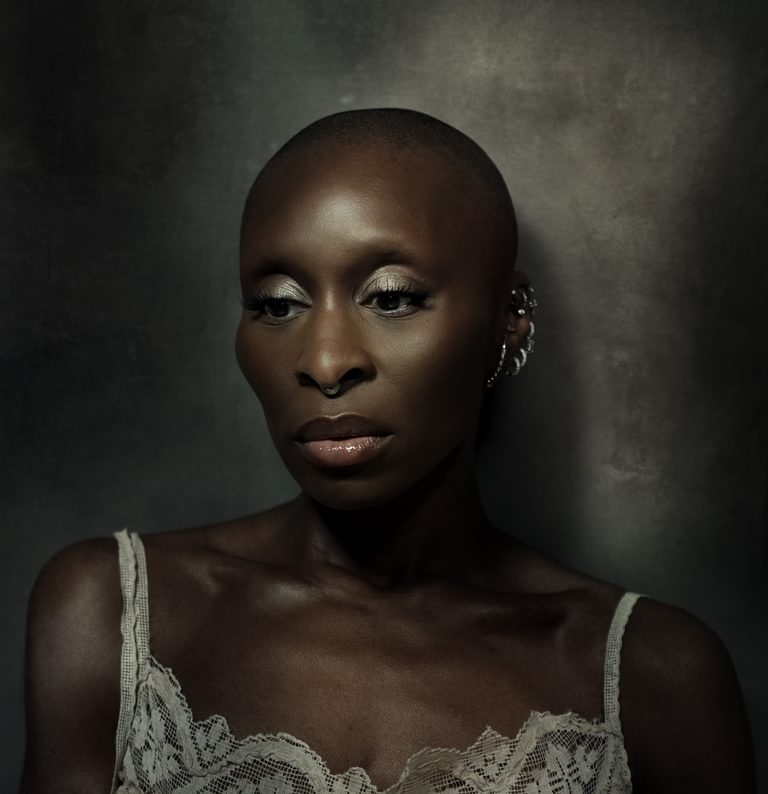
And so, her lyrics are direct and plainspoken. Her need to be understood outweighs flourishes of wordplay. “Someone said to me, ‘You don’t use very many words’,” Erivo recalls. “I think I find it hard to sing something that has a lot of lyrics because there’s no space to play. I write to get to the heart of the matter quickly, as opposed to finding a clever or quippy way to say what I really mean. My songwriting is sparing with words. I can’t do what SZA, or Ari does so well where there are several words in a line and it’s a run-on phrase – it wouldn’t suit me. Look at RnB, right? It’s sparing with words. Take a Lauryn Hill song,” she says, before performing a verse to an audience of one. “Or ‘Rehab’ by Amy Winehouse. It’s simple, lyrically, but it communicates directly. That’s the school I come from.”
“Replay” is unflinchingly personal: “Daddy trauma has emasculated all my common sense / So I’m looking through the lens of an impending abandonment”. Erivo is estranged from her father; the last time she saw him was when she was 16, abandoning them at the tube station. Across this album and the last – and, really, every relationship in her life including with herself – the aftershock of this disownment is still sharply felt. “Things show up… they never really go away. They just get foggier, you know?” she tells me. “Whether consciously or unconsciously, there’s a notion that sets in that everyone is going to leave at some point. So, get them out quickly - or be on guard to expect it. Neither is healthy.”
In the song, she references the observations of her therapist – and if their role is to hold a mirror up to you so that you can better understand your own reflection, then songwriting is not so different. “I think that therapy is the processing of things, whereas writing music feels more like an exorcism,” Erivo observes. “It helps you process you: once it’s out on a page, you see outside of yourself. Therapy is taking the words of someone else to help you understand the meaning of your own in order to explain what you’ve been through. Both are therapeutic in nature, but for me, writing is much more visceral.”
"My songwriting is sparing with words. I can’t do what SZA, or Ari does so well where there are several words in a line and it’s a run-on phrase – it wouldn’t suit me."
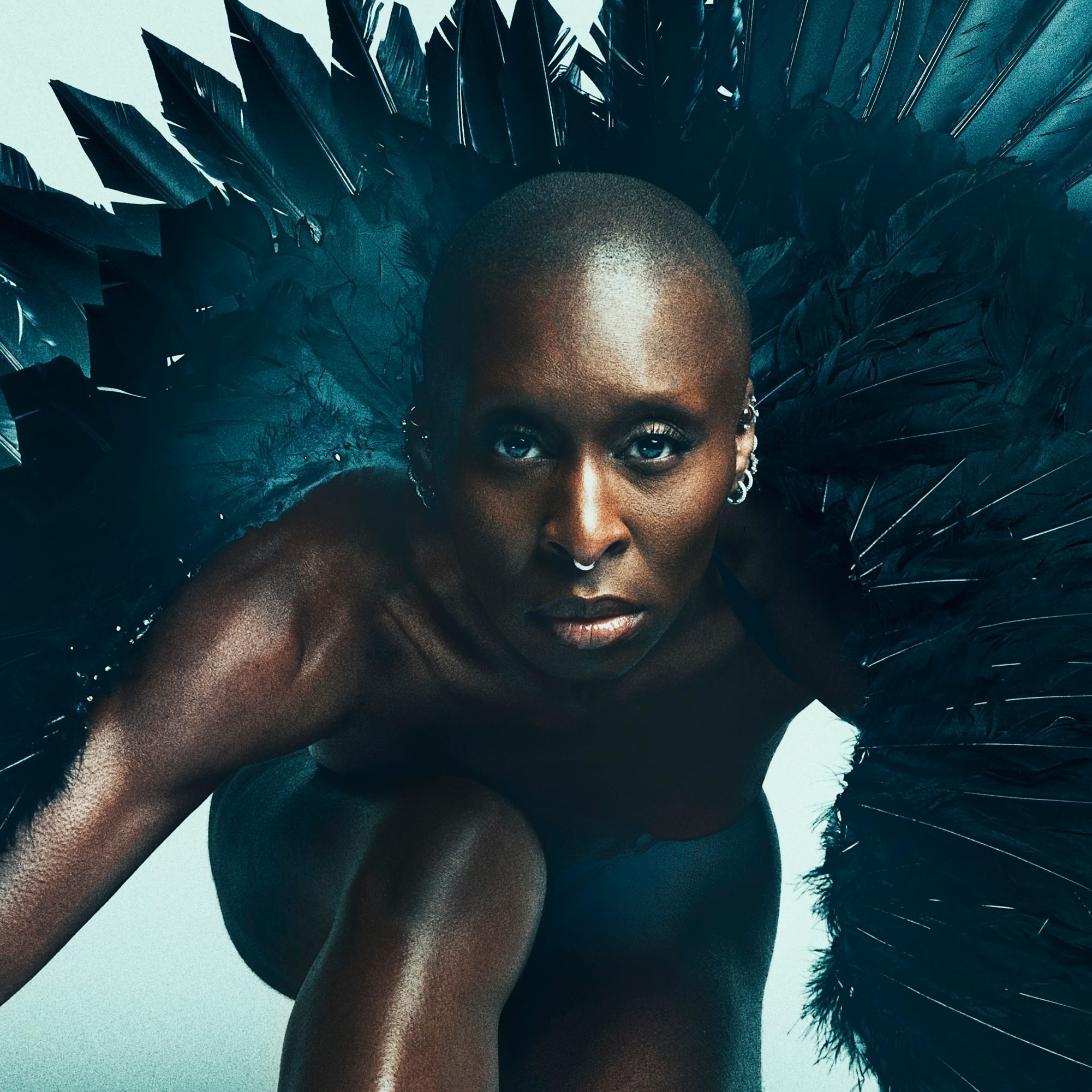
Sharing the specifics of what Erivo is exorcising is not the kind of vulnerability she had in mind. This interview, her lyrics, this album – it’s deliberately universal, shared in broad strokes. Of love, she says, she has learned that “it is ever-changing, it never takes one form or one shape. It changes from person to person, and some loves are bigger than others. Some loves are real, and some loves are not even though you think they are.
"And it’s never tidy,” she emphasises, “even when it’s delightful, part of the joy of love is its messiness – the free-flowing nature of what it is. It shifts every day. You love someone more, you love someone less, and then you have to find out where you are within that sliding scale. I think I’ve learned that I am good at it, but I haven’t always been.”
Erivo is not easy on the ‘you’ in her lyrics, but on herself she is harder still. She subjects herself to excoriating self-analysis; her independence and compulsion to overachieve are where she points the blame. The chip becomes a crack becomes a break and the relationship is never whole again. “I had to go back and think, ‘Maybe I didn’t handle that so well, maybe I showed my worst self’ – and it’s an acceptance of the imperfection of who we are as humans. It’s important for us to look at the things we may have done in our past because that’s how we teach ourselves and take control over what we choose to repeat in our future.”
We see the fruits of her impulse to achieve, but the story of her determination is lesser known. Raised by her mother, a nurse, Erivo attended the single-sex La Retraite Roman Catholic Girls' School in Clapham Park where she would learn the clarinet, viola and saxophone. But her passion for singing predates it all: from being as young as five-years-old she loved to perform – particularly when she recognised the joy she could bring her audience. Later, she would drop out of her music psychology degree and work at the Theatre Royal Stratford East as an usher. She was refused the chance to audition an it was only under the mentorship of artistic director Rae Macken, who cast her in a youth outreach production of Romeo and Juliet, that led to her enrolment at RADA.
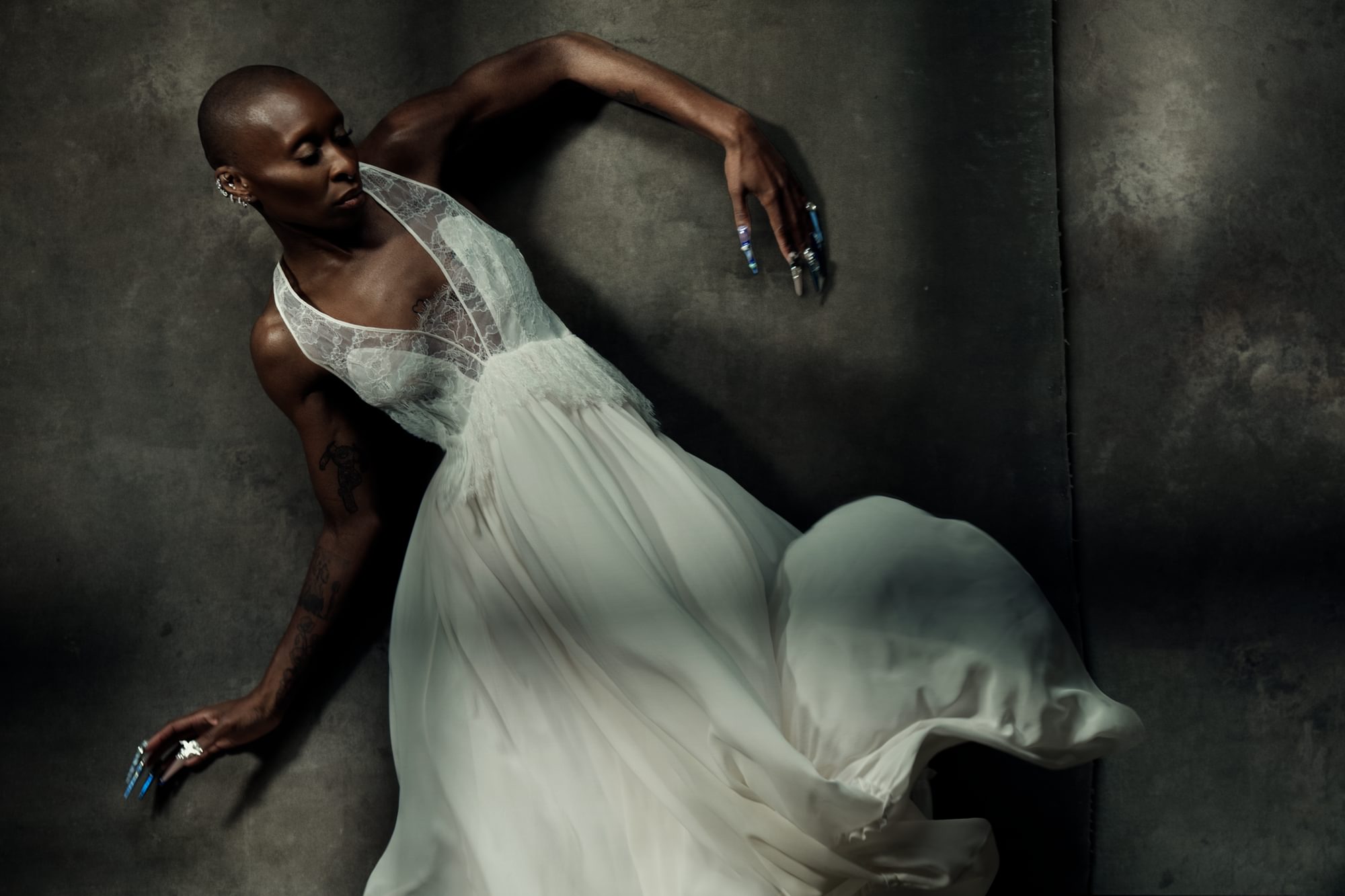
Just before she started her course, Erivo auditioned for and won a backing-singer gig for Westlife which would’ve paid her student fees - but had to turn it down because of the school’s disapproval. She worked tirelessly for the shirtmaker Thomas Pink alongside her studies. Her exhaustion, something her more privileged classmates were not subject to, meant that Erivo was given only small parts in the student productions – key to securing an agent and setting a career in motion. So Erivo decided to put on her own cabaret and run it by her own rules. Naturally, an agent soon followed; the West End, Broadway, television and Hollywood wouldn’t have long to wait.
“I’m a bit of a workaholic,” she says, perhaps unaware of the understatement. “I mean, I’m getting a bit better at being able to say no and have time to decompress and think and feel. But I think it comes from the DNA of being the child of a first-gen immigrant, and as a Black woman. You don’t want to let anyone down, and you’re constantly trying to do the very best you can because society isn’t going to make space for you otherwise. And then you run yourself into the ground.”
“The road is yours to do with as you please,” she says, when I ask what she feels the common denominator is between herself and those who have succeeded around her. “But I’m really fucking stubborn, to a fault. It’s hard for me to take no for an answer – which is not always great, because sometimes taking the ‘no’ for an answer means there might be a ‘yes’ around the corner. I’ve had to learn when to hear the ‘no’. I’m also detail-oriented, and I will go in on something consistently until it's right. I want to be a caring human being – I hope I am – and I’m so curious about what I need to do. When I’m on set, I know it drives my directors crazy, and it’s the same with my music.”
When she describes the minutiae of production choices for the album, she replicates the synaptic bursts of questioning – a million-miles-an-hour mind. She walks me through how the thought processes behind the particular tone of the strings, the exact number of decibels, how many violas to include and how she walks the line between abstractions of softness and violence. Not a single detail has escaped her.
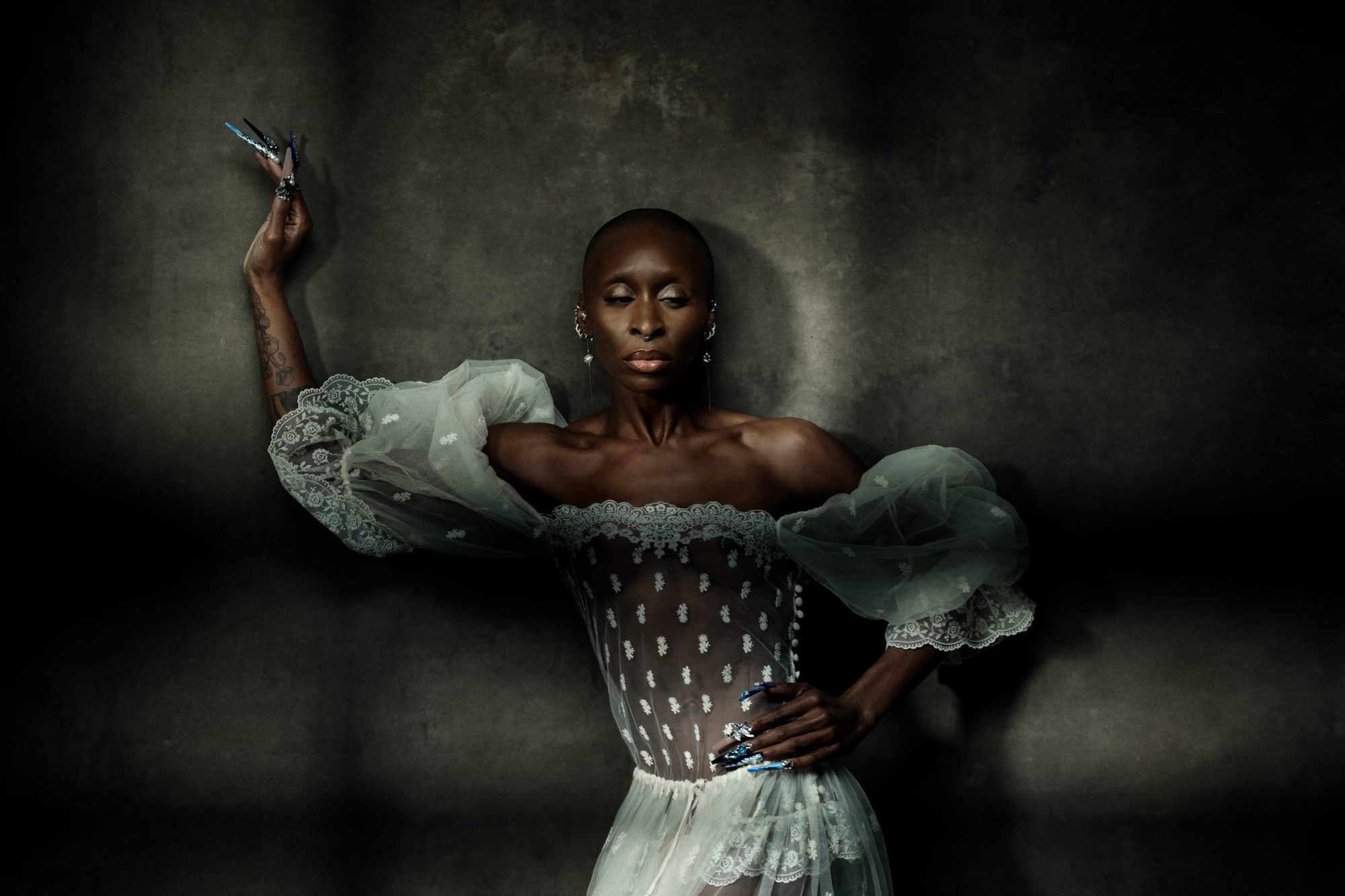
Writing music allows Erivo to connect with herself when her career has been in the service of others. “This is not to say you can’t be vulnerable in work that is written by other people, but there’s another layer of exposure when you’re wearing your own words,” she shares. I ask her if songwriting has been a more recent love affair in her life. Nonchalantly, she tells me that she wrote a song at 15-years-old which was given to a girl band, and another which was eventually used as the soundtrack for Beyond the Lights. “So I’ve been writing for a while,” she shrugs.
It came about because Erivo had joined a writing camp as a teenager; a producer put it in the hands of a manager who then put it in the hands of Gina Prince-Bythewood who placed it in her movie. “I just couldn’t even believe it was happening, it was a really big deal for me,” she smiles, charmed by a memory it seems she hadn’t dusted off for some time. “I don’t remember being afraid to write it, I just felt kind of excited to see if it was even possible for me.”
Her mother is an avid music lover, the sounds of Aretha Franklin, Diana Ross and Boney M blaring through the speakers in the kitchen being the formative soundtrack to Erivo’s childhood. But it would be Brandy’s 1994 debut which would transform her. “I bought the album and then I bought a spare album just in case,” she shares. “I wrote her a letter, actually.” Did she ever reply? “Oh, I know her now,” Erivo smiles, betraying a little of her inner child’s pride. “I think I received a signed version. I just could not stop listening to that album for two or three months straight, constantly playing through my headphones on my little CD Walkman. She taught me about harmony, riffs and how I could use my own voice.”
The album ends with “Grace”, and grace is something which must be earned. I Forgive You, a final act of acceptance, walks us through a treacherous path toward hard-earned serenity. “We believe to forgive is to concede defeat,” says Erivo. “But I totally believe it’s the opposite. Forgiveness is absolute strength. It’s the harder action to take. Sometimes, I’ve had to look in the mirror and forgive myself – which is the hardest thing of all. You have to let go of things, even though it may be painful. But you learn from letting go and putting yourself back together again. I feel grateful to be in this moment where I can actually just be, and share what I’ve learned and who I am on the other side of it.”
Get the Best Fit take on the week in music direct to your inbox every Friday
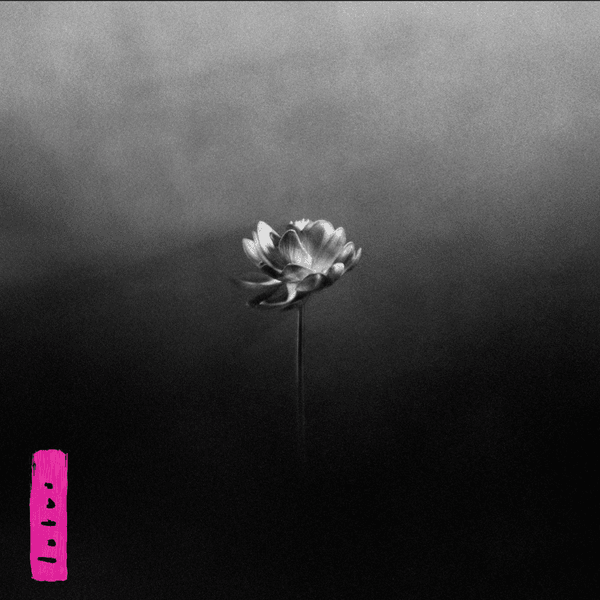
Little Simz
Lotus

Turnstile
Never Enough
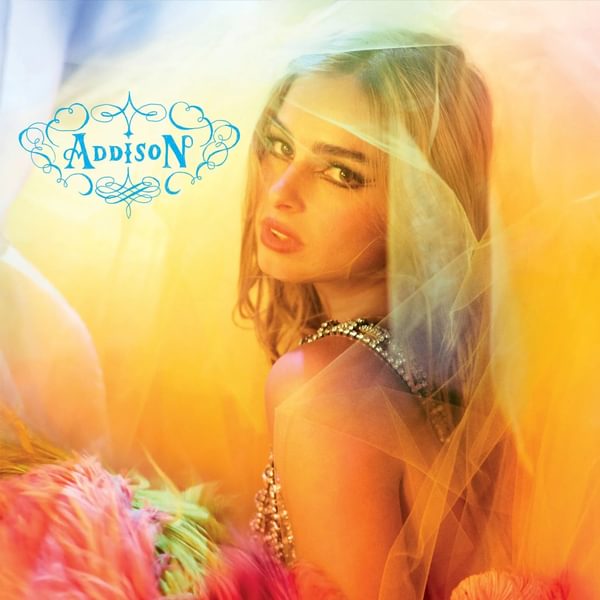
Addison Rae
Addison
